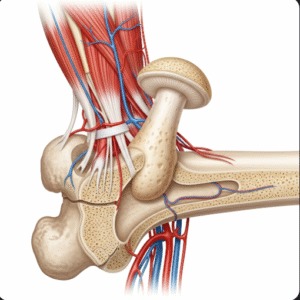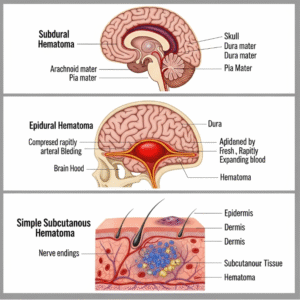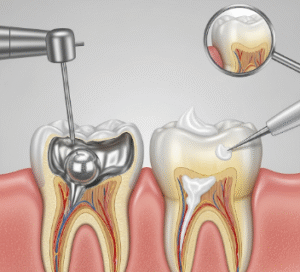Overview
Abdominal pain in children is a common complaint that can range from mild discomfort to severe, persistent pain. It may result from a variety of causes, including digestive issues, infections, stress, or underlying medical conditions. While occasional tummy aches are often harmless, persistent or severe pain can indicate more serious problems that require medical attention. In Korea, pediatric hospitals and specialized clinics offer advanced diagnostics and treatments for children, combining medical expertise with child-friendly care to ensure accurate evaluation and effective management.
Key Facts
▶ Prevalence: Abdominal pain affects a significant number of children globally at some point during childhood.
▶ Types: Acute (sudden onset) or chronic (lasting weeks or months).
▶ Common Areas Affected: Upper abdomen, lower abdomen, or around the belly button.
▶ Causes: Gastrointestinal infections, constipation, food intolerances, stress, or systemic illnesses.
▶ Treatment Options in Korea: Lifestyle interventions, medications, dietary management, and specialized pediatric care.
What is Abdominal Pain in Children?
Abdominal pain in children refers to discomfort or pain in the stomach or abdominal area. It can be mild and short-lived or persistent and severe, sometimes interfering with daily activities like school, play, and sleep.
▶ Acute Pain: Sudden onset, often caused by infections, injuries, or food-related issues.
▶ Chronic Pain: Lasting for weeks or months, possibly linked to functional gastrointestinal disorders, stress, or underlying medical conditions.
Note: The severity, duration, and location of the pain, along with associated symptoms, help guide diagnosis and treatment.
What Symptoms Are Related to Abdominal Pain in Children?
▶ Cramping or Stomach Ache: Commonly described as sharp, dull, or colicky.
▶ Nausea or Vomiting: May accompany infections, food intolerances, or other conditions.
▶ Diarrhea or Constipation: Often associated with gastrointestinal disorders.
▶ Fever: Suggests infection or inflammation.
▶ Loss of Appetite: May occur with chronic or severe abdominal pain.
▶ Irritability or Fatigue: Children may appear unusually cranky or tired.
▶ Bloating or Gas: Common in digestive disorders or food intolerances.
▶ Pain Location Changes: Pain may shift or localize, indicating specific conditions like appendicitis.
What Causes / Possible Causes
Abdominal pain in children can result from a variety of gastrointestinal, systemic, and functional causes:
▶ Gastrointestinal Infections: Viral, bacterial, or parasitic infections causing stomach upset.
▶ Constipation: Hard stools causing bloating and cramping.
▶ Food Intolerances or Allergies: Lactose intolerance, gluten sensitivity, or other dietary triggers.
▶ Functional Abdominal Pain: Stress or emotional factors affecting gut function.
▶ Appendicitis: Inflammation of the appendix requiring urgent medical attention.
▶ Urinary Tract Infections (UTIs): May present as abdominal or lower back pain.
▶ Inflammatory Bowel Disease (IBD): Conditions like Crohn’s disease or ulcerative colitis.
▶ Hernias or Other Structural Issues: Can cause localized or severe pain.
▶ Medications: Certain drugs may irritate the stomach.
When Should I See a Doctor?
▶ Persistent or Severe Pain: Lasting more than a few days or interfering with daily activities.
▶ Pain with Fever or Vomiting: May indicate infection or serious illness.
▶ Blood in Stool or Vomit: Requires immediate medical attention.
▶ Unexplained Weight Loss: Could suggest chronic gastrointestinal disorders.
▶ Pain with Urination or Urinary Symptoms: Possible urinary tract infection or kidney involvement.
▶ Localized Pain: Sharp, sudden pain in a specific area, especially lower right abdomen (appendicitis).
▶ Behavioral Changes: Lethargy, irritability, or refusal to eat or play.
Tip: Early evaluation ensures prompt treatment, prevents complications, and helps maintain the child’s overall health and development.
Care and Treatment
Management depends on the underlying cause and may include:
▶ Dietary Adjustments: Avoiding trigger foods and ensuring a balanced diet.
▶ Hydration: Encouraging fluids to prevent dehydration from diarrhea or vomiting.
▶ Medications: Antispasmodics, antibiotics, or pain relievers as prescribed by a pediatrician.
▶ Probiotics: To support gut health in certain gastrointestinal disorders.
▶ Stress Management: Support for school-related or emotional stress contributing to pain.
▶ Rest and Comfort Measures: Warm compresses or gentle tummy massage for mild discomfort.
Additional Tips: Maintain a pain diary to track symptoms, triggers, and response to treatment for better clinical assessment.
Treatment Options in Korea
Medical Treatments:
▶ Pediatric Gastroenterology Consultation: Detailed evaluation for chronic or severe abdominal pain.
▶ Medications: Tailored treatment for infections, constipation, acid reflux, or functional disorders.
▶ Allergy Testing: To identify food intolerances or sensitivities affecting gut health.
Advanced Interventions:
▶ Endoscopy or Imaging: For unexplained or persistent pain to check for structural or inflammatory issues.
▶ Surgical Intervention: Required in cases such as appendicitis, hernia, or severe anatomical abnormalities.
Rehabilitation & Support:
▶ Nutritional Counseling: Pediatric dietitians in Korea provide personalized meal plans.
▶ Behavioral Therapy: Support for functional abdominal pain linked to stress or anxiety.
▶ Follow-up Care: Regular monitoring to track symptom improvement and prevent recurrence.
Outcome: With early assessment and comprehensive treatment in Korea, most children with abdominal pain recover fully, maintain proper growth and development, and experience relief from recurrent discomfort.












